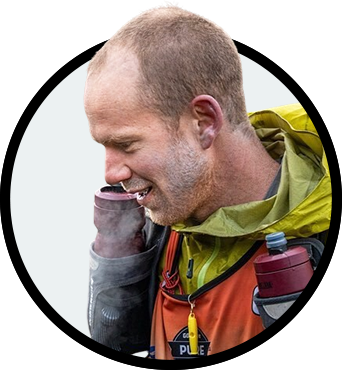"Who’s on your team?”
Whenever I pose this question to my coached athletes, I’m initially met with a baffled look.
“Erm, coach, you realise triathlon is an individual sport, right?”
I suppose many endurance sports are a solo pursuit when you’re doing battle on the race course, but the journey to the start line is far from a lone endeavour. When you consider how many bumps we encounter on the road to our race goals, it would be some sort of miracle to make it completely under our own steam.
How could we create safe and effective training methods, eat the right foods, treat injuries, enter and exist in the right headspace, and maintain harmonious personal and professional lives if we were doing it all on our own?
Either we simply couldn’t or we’d be missing a key opportunity to be better at everything, which is why creating a tight and trusted team around us is vital...
Who's on your team?
So once again, who’s on your team?
The answer is usually different and so it should be. We all bring our own unique characteristics and demands to our individual sports and so we should look to create a team that integrates its way into our personal situation.
For example, my team has been developed and refined over a number of years and now exists in a fairly consistent format. Let me list my team below and expand on their roles with a brief explanation as to why each person has a place:
- Wife: My sounding board and confidant. It’s never easy preparing for a major event, let alone when a young family and a business adds a circus-like juggling act into the daily mix. Thankfully my wife is a major part of the performance each and every day.
- Coach: I find the training part hard enough, let alone trying to do the thinking, planning and analysing. Luckily I don’t really have to do those other things thanks to my coach, so the training part becomes most of my focus.
- Physiotherapist: We’re always ‘between injuries’ in this game. Having a physio who knows me well after years of treatments certainly speeds up the diagnostic and rehab process.
- Massage therapist: Prevention is better than cure. If I see my massage therapist every week or two, I don’t get injured as much. I've used the same person for around five years now, so she knows exactly how to make me flinch.
- Nutritionist: If I believed every piece of nutrition advice I’d read I would only drink water. Taking advice from one trusted source has helped eliminate the noise and also give me faith that most foods are not trying to kill me.
- Sponsors: Yes, this part is maybe more applicable to the pro athlete, but perhaps you call it your ‘employer’. It's the people who help make taking part in sport possible and viable. Keeping the communication flowing is healthy for any relationship and it’s especially rewarding to share the successes with the people who believed in you long before it happened.
Sport is complicated enough, so let’s not go adding people to the list unnecessarily. You want people on your team who you trust because when everyone is trying to tell you what tires or running shoes are fastest or which recovery product to buy, you want to know you can turn your back and walk straight towards your team for advice on the next step.
Learn from elite athletes
I always use the words ‘trusted’ and ‘tight’ as a precursor to ‘team’ because they are the non-negotiable. Your ‘trusted tight team’ needs to be small enough to avoid ‘noise’ and trusted enough that your actions follow their influence automatically. You’re still steering the ship, but your team is making it much easier to keep it straight.

It’s often a trait I observe listening to or reading about successful athletes. Many credit successes to their psychologists, bike fitters, physiotherapists, managers or biomechanists, alongside the more obvious ones like training partners, coaches and strength trainers. They always seem very particular and deliberate in the team they surround themselves with.
And yet, this doesn't need to be a domain that's only exclusive to the elite athletes.
If anything, those of you with jobs and family lives to juggle alongside your sporting endeavours could reasonably claim to have a greater need for having a team to support the fitness journey. As is so often true in all areas of life, we can learn a lot from the top performers.
Make it personal
So the next time you feel overwhelmed (or underwhelmed for that matter) by the many pieces of the endurance puzzle, remember you're the skipper, but you can always benefit from deckhands (sorry, that will be my last maritime analogy). Be deliberate with the roles you seek to fill and people you look to employ.
You can have too many on the team and you can have too few. So consider the roles before identifying the people and make those roles specific to your personal situation. You might need a podiatrist, while I may not. But I might consider massage as critical whereas you're an acupuncture kinda athlete.
When I ask my athletes “who’s on your team?”, once the baffled looks have subsided, the answer is different between people and each answer is almost always evolving too. And that’s how it should be.
We’re all unique and we all seek evolution in our sport. So sail forward (damn it, sorry) and be sure to bring a tight and trusted team alongside you.
